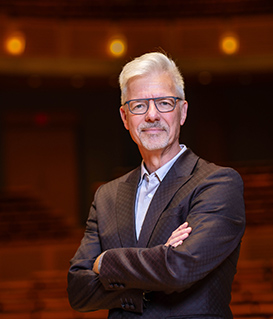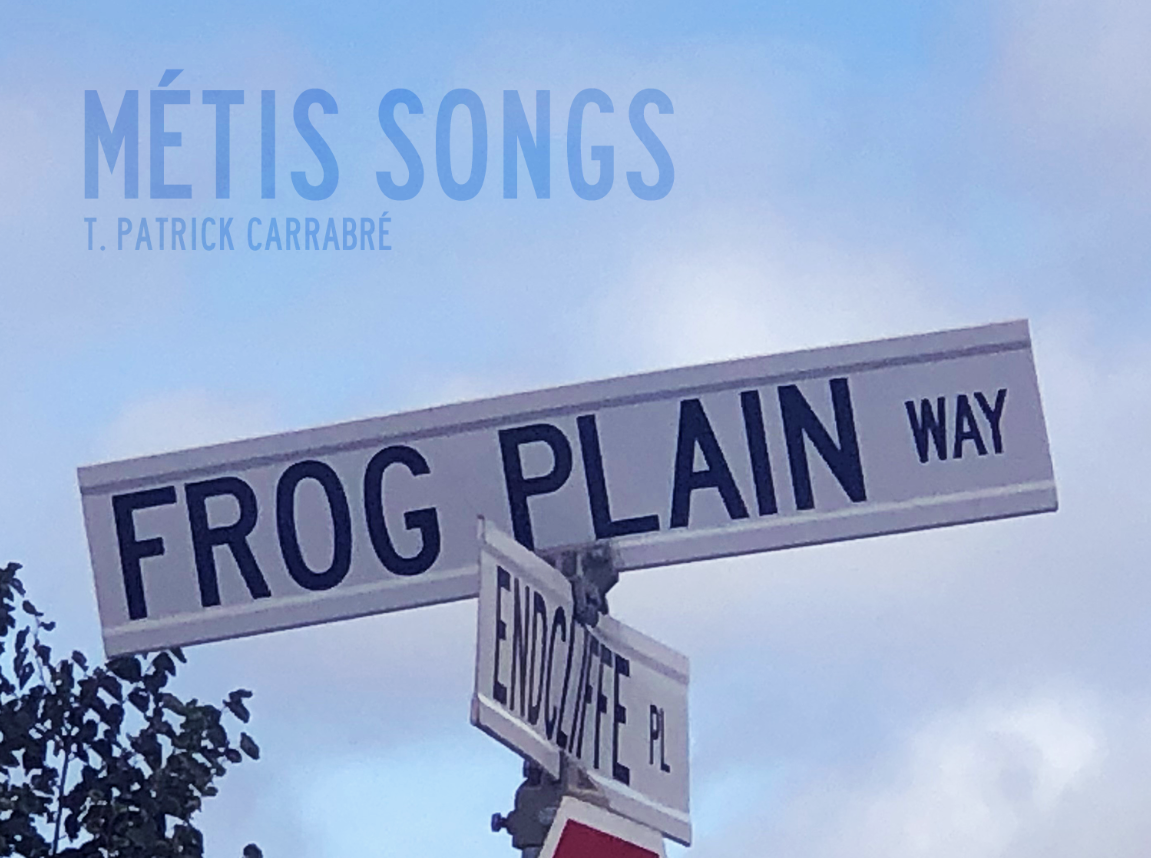T. Patrick Carrabré
Director, Chan Centre for the Performing Arts
Research Area
Education
B.Mus., University of Manitoba
M.Mus., University of Western Ontario
Ph.D., CUNY
About
T. Patrick Carrabré has been active as a composer, administrator, educator, radio host and conductor. For well over a decade, he worked closely with the Winnipeg Symphony Orchestra, including six seasons as composer-in-residence and co-curator of the orchestra’s New Music Festival. Also active in the media, Carrabré served two seasons as the weekend host of CBC Radio 2’s contemporary music show The Signal.
Commissioners have included pianists Janina Fialkowska, Megumi Masaki and Alexander Tselyakov, the Gryphon Trio, the Winnipeg Singers, the Ottawa Chamber Music Festival, the Winnipeg Chamber Music Society, cellists Caroline Stinson and Shauna Rolston, as well as the Manitoba Chamber Orchestra and the Eckhardt-Gramatté National Music Competition. Carrabré’s best known compositions include Inuit Games, for throat singers (katajjak) and orchestra, Sonata No. 1, The Penitent, for violin and piano, From the Dark Reaches, and A Hammer For Your Thoughts…. Together these works have earned two Juno nominations, a recommendation at the International Rostrum of Composers (2003), a Western Canadian Music Award (Best Classical Composition) and two other WCMA nominations. This past November, his “Eternal Earth, Scherzo for Piano” was a test piece in the Montreal Symphony Orchestra’s Manulife Competition and Orpheus Drones was selected for the Spotify Playlist “Classical with Electronics.”
WATCH: Throat singers Inukshuk Aksalnik and Pauline Pemik perform Dr. Patrick Carrabré’s Inuit Games with the Toronto Symphony Orchestra.
Carrabré’s primary focus as an artist-researcher is in the area of research-creation. He has also been involved with community-engaged research. Construction of identity is a long-term theme, manifesting in his compositions, concert and radio programming, and administrative activities. The creation of shared musical spaces with indigenous and non-western musicians has also been a significant theme of his work and since the dawn of the Truth and Reconciliation era, this has led to a number of works confronting issues of decolonization, frequently using deconstructionist techniques. Carrabré’s other interests have included the exploration of his Métis heritage, use of interactive electronics, and editorial work.
Carrabré’s early compositional studies were with Dr. Robert Turner at the University of Manitoba and with Jules Léger Prize winning composer Peter Paul Koprowski at the University of Western Ontario. He later went on to work closely with Pulitzer Prize winner George Perle, completing a Ph.D. at the City University of New York. Besides his teaching at Brandon University, Carrabré served terms as Dean of Music and Vice-President (Academic and Research).
Carrabré is currently Director of the Chan Centre for the Performing Arts and Professor of Composition at the UBC School of Music, where he recently served as Director.



